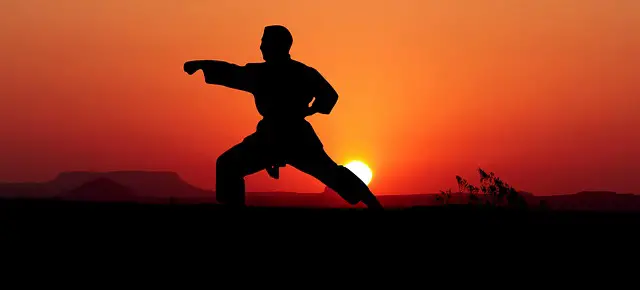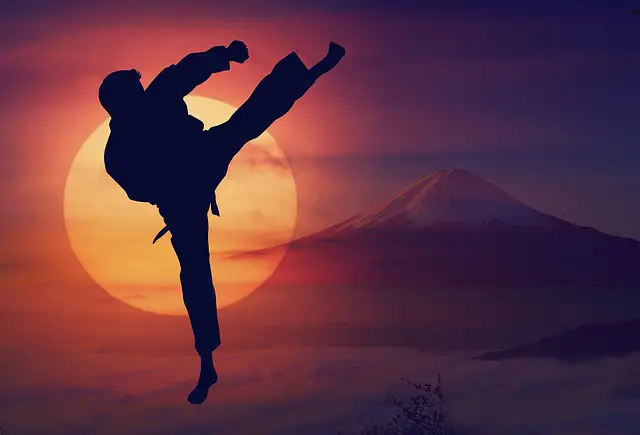Karate has evolved over the centuries, passing first from Japan to China and then beyond, to the point where now it has stretched its wings to almost every part of the world.
Karate’s popularity as a martial art is not hard to understand: it promotes not only your physical safety but also both your physical and mental health. Karate serves a key role in boosting self-esteem, confidence, and the focus needed to tackle the everyday challenges of life.
Let’s discuss the psychology of karate and consider its many benefits.
What Is Karate Psychology?
There is a deep connection between martial arts and the human psyche. Karate is no exception. The term ‘karate psychology’ refers to various ways of improving one’s psychological strength by learning karate. For instance, some karate techniques promote cognitive development, effectively strengthening the brain’s ‘muscles.’ As Seitz, a martial art trainer, says, “Martial arts can offer you a lot when it comes to psychological therapy and energy.”
Effective use of mental energy is a key way to boost your health, communication, and attention span.
Top 5 Facts You Should Know about Karate:
1. Karate nourishes the relation between mind and body.
Karate isn’t all about punching, kicking, and throwing your opponent on the ground. It is actually more about finding the balance between your mind, body, and spirit.
Karate was never meant to be limited to fighting. Instead, the creator of this art aimed to use karate to achieve inner peace, mental satisfaction, and full control over himself. This is the reason karate offers such a wide range of mental health benefits, including sharpening one’s memory and providing a range of emotional benefits.
Improved Memory
Italian researchers, for example, have found that taking part in karate can significantly improve one’s memory.
Emotional Well-Being
Another study has shown that learning karate improves one’s overall emotional well-being.
Benefits to Children
In addition, karate schools are a great place to nurture the ongoing emotional and physical development of children, who can, among receiving other benefits, learn important social skills by interacting with other students of a similar age.
2. Karate establishes a sense of responsibility, focus, and flexibility.
Responsibility
Developing a sense of personal responsibility for one’s actions is among the most important mental habits, as noted in Stephen Covey’s book “7 Habits of Highly Effective People.”
Martial arts open a path to self-realization by developing a strong relationship between mind and body. As individuals, we are responsible for what we think, feel, or do. Practicing a martial art requires a sense of responsibility in order to face an opponent. In addition, responsibility is needed to commit to the practice needed to master martial arts moves and be able to respond instantaneously to various situations. Leadership skills also come into play, as martial arts practitioners will often have the opportunity to lead others, both in practice and in competitions.
Focus
In karate, focus is essential in order to properly learn and practice the many moves that must be mastered. To learn a martial art, you must stay active and aware.
Statistics show that more than 6.4 million children in the US have Attention Deficit Hyperactivity Disorder (ADHD). Some parents may turn to medication and counseling, but many have discovered that bringing their children to karate schools can be a huge help. With continuous practice and repetition, even ADHD students can learn the art of focus.
Flexibility
The best way to be flexible in your posture is to carry out stretching exercises. Stretching improves the way you walk and function in daily life, and it can help prevent injuries. Stretching also regulates blood flow via the muscles and boosts overall physical performance.
Stretching is common in martial arts classes, and for many karate institutes, stretching is actually compulsory before each class.
3. Karate promotes self-discipline.
Developing a strong spirit of self-discipline is an important asset in both our professional and personal lives. Routine practice in karate schools empowers students to control their emotions, urges, and ability to respond to unexpected situations.
Through karate we learn to think before acting, respond quickly with rapid movements, and focus more clearly on our actions. This learning process fosters self-discipline.
4. Karate increases patience.
By experiencing and overcoming failures while mastering a difficult art, students of martial arts learn perseverance.
Like other arts, karate requires a constant workflow and thousands of hours of practice. Advancement in belt ranks requires dedication and a commitment to encounter whatever challenges may come. For the student of karate, every new challenge is an opportunity to move up in belt rank. In this way, the student grows in patience and slowly progresses up the ladder of success.
Aikido founder Morihei Ueshiba says, “Failure is the key to success; each mistake teaches us something.” Karate institutes apply the same principle, resulting in the development of a spirit of endurance and perpetual striving.
5. Karate teaches enduring life lessons.
In martial arts classes, trainers focus not only on teaching punches, kicks, exercises, etc., but also important life lessons such as how to maintain a balance between one’s personal and professional lives, how to face difficulties, how to stay mentally and physically strong, how to patiently achieve one’s goals, and how to stay calm and respond accordingly to stressful situations.
Key Takeaway
Karate psychology is all about mastering yourself so that you can live life self-sufficiently, with confidence. Change doesn’t come without effort, and growth requires belief in yourself.
When you start practicing karate, you will quickly beging to observe changes in your mood and in your physical and personal life. Stress, depression, self-doubt, and laziness will fade away, to be replaced by a sense of self-esteem, security, and self-control.
What are you waiting for?



